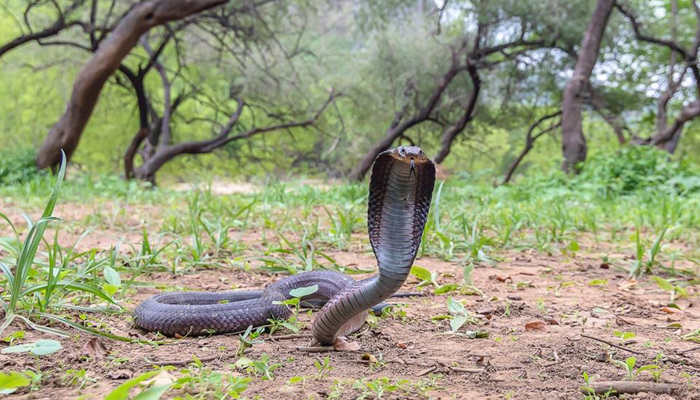
Muscat: An Omani amputee who specialises in the research of snake venom has travelled hundreds of kilometres to study the reptiles and understand their behaviour.
Ahmed bin Hamoud Al Busaidi, who works at the University of Nizwa’s Natural and Medical Sciences Research Centre, credits being brought up in lands primarily used for agriculture with his love of nature.
Despite suffering an accident while on his bicycle when he was just eight years old, Ahmed’s fascination with the great outdoors has seen him spent many hours photographing the wonders of nature and researching wildlife indigenous to the country.
“I was raised in a village full of farms, surrounded by mountains in the north and deserts to the south,” he explained. “Wherever I went, I found something that appealed to me and satisfied my constant curiosity for knowledge and research. As a result of this, I was never bored.”
“I have been willing to travel hundreds of kilometres in search of snakes, particularly the rarer breeds,” he added.
“When I was a child, I acquired some snakes, and became fascinated by their world. I would watch them with focus, observe their behaviour, and from this, I developed a passion to research them, which is now my daily job.”
The many years he has spent handling snakes has enabled Ahmed to deal with extremely poisonous species such as the Arabian cobra and the puffer snake. Although he has been bitten previously, he used his experiences as an opportunity to learn and continued to improve his understanding of the reptiles.
“There are a wonderful and beautiful diversity in the wildlife of the Sultanate, which is blessed with varying terrains,” said Ahmed. “Because of its landscape, which includes plains, mountains, vast deserts, open beaches, as well as various islands – and due to its strategic location – Oman sees many birds migrate here for the winter, and in the summer, there is increased activity among reptiles.
“There are at least 101 different reptile species and 540 varieties of birds, of which migratory birds make up 75 per cent,” he said.